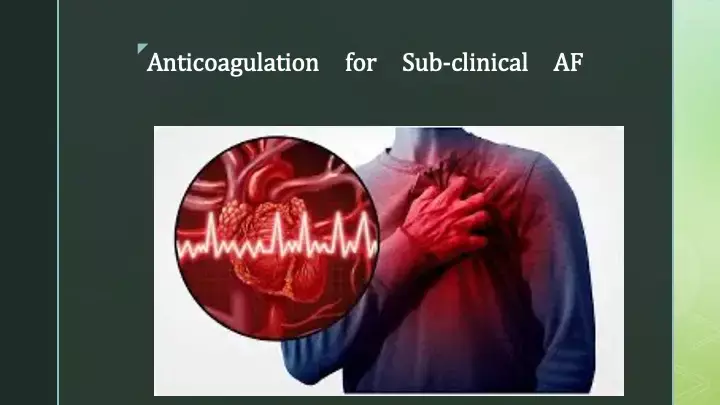- Home
- Medical news & Guidelines
- Anesthesiology
- Cardiology and CTVS
- Critical Care
- Dentistry
- Dermatology
- Diabetes and Endocrinology
- ENT
- Gastroenterology
- Medicine
- Nephrology
- Neurology
- Obstretics-Gynaecology
- Oncology
- Ophthalmology
- Orthopaedics
- Pediatrics-Neonatology
- Psychiatry
- Pulmonology
- Radiology
- Surgery
- Urology
- Laboratory Medicine
- Diet
- Nursing
- Paramedical
- Physiotherapy
- Health news
- Fact Check
- Bone Health Fact Check
- Brain Health Fact Check
- Cancer Related Fact Check
- Child Care Fact Check
- Dental and oral health fact check
- Diabetes and metabolic health fact check
- Diet and Nutrition Fact Check
- Eye and ENT Care Fact Check
- Fitness fact check
- Gut health fact check
- Heart health fact check
- Kidney health fact check
- Medical education fact check
- Men's health fact check
- Respiratory fact check
- Skin and hair care fact check
- Vaccine and Immunization fact check
- Women's health fact check
- AYUSH
- State News
- Andaman and Nicobar Islands
- Andhra Pradesh
- Arunachal Pradesh
- Assam
- Bihar
- Chandigarh
- Chattisgarh
- Dadra and Nagar Haveli
- Daman and Diu
- Delhi
- Goa
- Gujarat
- Haryana
- Himachal Pradesh
- Jammu & Kashmir
- Jharkhand
- Karnataka
- Kerala
- Ladakh
- Lakshadweep
- Madhya Pradesh
- Maharashtra
- Manipur
- Meghalaya
- Mizoram
- Nagaland
- Odisha
- Puducherry
- Punjab
- Rajasthan
- Sikkim
- Tamil Nadu
- Telangana
- Tripura
- Uttar Pradesh
- Uttrakhand
- West Bengal
- Medical Education
- Industry
Subclinical AF: Apixaban reduces Stroke risk, albeit at a higher bleeding risk, ATRESiA trial

Subclinical atrial fibrillation (AF), characterized by brief episodes identified through a device capable of continuous, long-term arrhythmia monitoring, has been detected in approximately one-third of individuals with a pacemaker or implantable cardioverter-defibrillator (ICD). There is currently no guideline recommendation to use oral anticoagulation or aspirin in patients with subclinical AF detected on an implantable device.
To answer this ambiguity, Healey et al now report in NEJM the results of the ATRESiA trial. The authors have found that use of apixaban (vs. aspirin) resulted in a lower risk of stroke or systemic embolism than aspirin but a higher risk of major bleeding in patients with subclinical AF.
Previous studies have linked subclinical AF with a roughly 2.5-fold higher risk of stroke. While this risk is less than that associated with clinical AF (approximately 4.5-fold), the use of oral anticoagulation in response to subclinical AF remains an unresolved question.
Conducted across 247 centers in 16 countries, the ARTESiA study enrolled 4,012 patients exhibiting subclinical AF episodes lasting 6 minutes to 24 hours on an implanted pacemaker, defibrillator, or cardiac monitor.
Eligible participants had one of the following factors: age ≥ 55 with a CHA2DS2-VASc score ≥ 3, age ≥ 75, or a history of stroke. The randomization allocated individuals to either apixaban at 5 mg twice daily (or a half dose based on specified criteria) or aspirin at 81 mg/day.
The primary efficacy outcome, stroke or systemic embolism, was assessed in the intention-to-treat population (ITT) (all the patients who had undergone randomization); the primary safety outcome, major bleeding, was assessed in the on-treatment population.
At baseline, the mean CHA2DS2-VASc score stood at 3.9, with roughly two-thirds of patients already on antiplatelet therapy. The average duration of the longest subclinical AF episode in the preceding 6 months was approximately 1.5 hours.
Over a mean follow-up period of 3.5 years, apixaban demonstrated a reduction in the risk of stroke or systemic embolism in the ITT analysis while simultaneously elevating the risk of ISTH major bleeding in an on-treatment analysis. The heightened risk of major bleeding persisted in the ITT population.
Decoding the findings:
First author Healey presented a risk-benefit analysis showing that there would be 4.6 fewer strokes or systemic emboli and 4.1 more major bleeding per 1,000 patient-years with apixaban versus aspirin.
He noted that 45% of strokes in aspirin-treated patients were permanently disabling or fatal, and that this type of stroke was reduced with apixaban. In terms of major bleeds, he said only 20% of those that occurred in apixaban-treated patients were associated with hemodynamic instability or neurological symptoms.
There was no difference between the apixaban and aspirin groups in all-cause death or CV death.
In an accompanying editorial, Emma Svennberg, M.D., Ph.D writes, “apixaban treatment in patients with subclinical atrial fibrillation prevented severe strokes at the price of an increased risk of nonfatal bleeding. Going forward, we must balance the increased bleeding risks with the risk for disabling strokes. In patients with subclinical atrial fibrillation, vital components of care management include shared decision making before oral anticoagulant treatment, management of modifiable bleeding risks and coexisting conditions, and close monitoring of progression to clinical atrial fibrillation”.
Source: NEJM:
1. DOI: 10.1056/NEJMe2311558
2. DOI: 10.1056/NEJMoa2310234
MBBS, MD , DM Cardiology
Dr Abhimanyu Uppal completed his M. B. B. S and M. D. in internal medicine from the SMS Medical College in Jaipur. He got selected for D. M. Cardiology course in the prestigious G. B. Pant Institute, New Delhi in 2017. After completing his D. M. Degree he continues to work as Post DM senior resident in G. B. pant hospital. He is actively involved in various research activities of the department and has assisted and performed a multitude of cardiac procedures under the guidance of esteemed faculty of this Institute. He can be contacted at editorial@medicaldialogues.in.
Dr Kamal Kant Kohli-MBBS, DTCD- a chest specialist with more than 30 years of practice and a flair for writing clinical articles, Dr Kamal Kant Kohli joined Medical Dialogues as a Chief Editor of Medical News. Besides writing articles, as an editor, he proofreads and verifies all the medical content published on Medical Dialogues including those coming from journals, studies,medical conferences,guidelines etc. Email: drkohli@medicaldialogues.in. Contact no. 011-43720751


